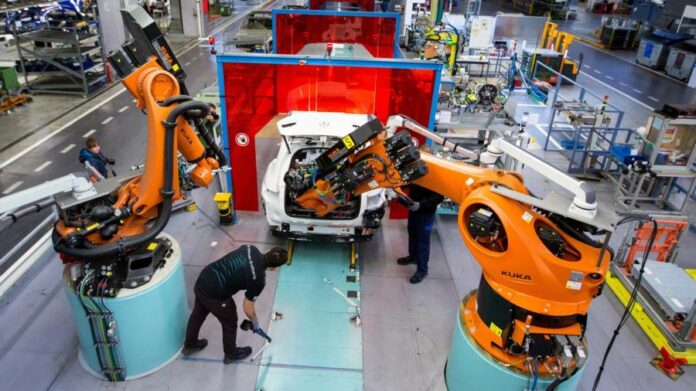Sales at BMW and Mercedes-Benz jumped in the final months of 2022 as the premium German car brands signalled supply chain problems that have plagued the industry were easing.
Carmakers around the world have been struggling with a lack of parts since the pandemic, particularly semiconductors, leaving many with large fleets of unfinished vehicles that cannot be delivered to customers.
Both BMW and Mercedes said full-year car deliveries slid last year by 4.8 per cent and 1 per cent, respectively, because of supply chain bottlenecks as well as lockdowns in China and the war in Ukraine.
But supply pressures eased in the final quarter of the year, with BMW reporting a 10.6 per cent jump in sales, with 651,798 cars delivered, and Mercedes fulfilling 540,800 orders, up 17 per cent on the same period in 2022.
BMW said the main effects of supply chain bottlenecks and lingering lockdowns were felt in the first six months of the year, adding that “sales increasingly picked up in the second half”.
Mercedes boss Ola Källenius told the Financial Times last week that the list of issues in the automotive supply chain was falling, but added that long waiting times for cars would persist in 2023.
“It is enough that one single chip that is vital [ . . .] is missing, and then you can’t finish the car, even if you have everything else,” he said.
Both car brands recorded strong growth in sales of electric vehicles. Mercedes, which last week announced a plan to build 10,000 charging docks, said EV deliveries 124 per cent to 117,800 last year compared with the one before.
BMW similarly reported strong growth in EV sales, with deliveries of fully electric cars last year doubling to 215,755.
Analysts at Bank of America said EV sales, including hybrids, hit a historic peak last November, with 1.1mn units sold. They attributed this largely to an upcoming phaseout of customer subsidies in Germany.
Shares in Mercedes and BMW were flat on Tuesday morning as investors priced in the improving supply picture.
Rolls-Royce, a subsidiary of BMW, announced on Monday that sales had hit a 119-year record, driven by strong demand in the US, its biggest market.
The luxury brand has largely been unaffected by the semiconductor squeeze, mainly because it makes relatively few vehicles and therefore needs fewer chips.






